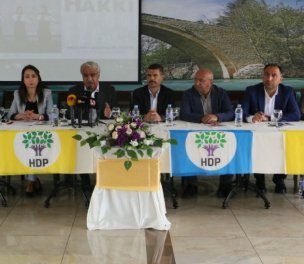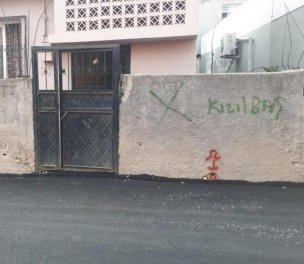Erdoğan speaking at the Şahkulu Sultan Cemevi in Kadıköy, İstanbul, on October 7. (Photo: AA)
The "Alevi democratic initiative" announced by President Recep Tayyip Erdoğan last week and detailed later in his statements following a cabinet meeting on Monday sparked public debate.
The president unveiled his plan on October 7 at the Şahkulu Cemevi in Kadıköy, İstanbul, at an opening and groundbreaking ceremony for 11 cemevis, Alevi places of worship, across the country. He said that they would be taking a democratic initiative in Türkiye which would also include the Alevis, a religious minority that is estimated to make up 10 to 20 percent of the country's population.
He noted that they had visited 1,585 cemevis, the Alevi places of worship, to listen to what the Alevis had to say.
The president announced that an institution to be named 'Alevi-Bektashi Culture and Cemevi Presidency' would be established under the Ministry of Culture and Tourism. It will undertake the management of all cemevis, he added.
Erdoğan remarked, "All the work, from cemevi services to education activities will be run with public support, assurance and control. Thus the problems of the cemevis such as illumination, drinking and utility water, construction, repairment, maintenance costs and their location in zoning plans will be solved."
Such a move would bring equality for the Alevis in terms of financial support from the state, as it already covers such expenses of the mosques of the Sunni majority through the Presidency of Religious Affairs.
Formally unrecognized as a religious community, the Alevis were also subjected to atrocities in recent history, most notably the 1978 Maraş Massacre, the 1980 Çorum Massacre, the 1993 Sivas Massacre and the 1996 Gazi Massacre.
Their places of worship and homes are still sporadically attacked in various parts of the country, mostly by marking buildings with "X." In a parliamentary question last year, an MP for the Peoples' Democratic Party (HDP) noted that 38 similar incidents took place in the country in a decade.
Reactions from Alevi groups
Several Alevi organizations met on Saturday, at the Tomb of Garip Dede in Küçükçekmece, İstanbul, and released a joint statement. Cuma Erçe, President of Pir Sultan Abdal Cultural Association read out the statement, saying Erdoğan's initiative was "neither democratic nor good news."
"On the contrary, it is the new stage of the ongoing practice of taking the breath away from Alevism, using state power. There is no support for it from within the Alevi community. It is an effort in vain.
"The problems of the Alevis are, as we have declared in the Hacı Bektaş declaration dated September 17/18, 2022, neither electricity, water problems or construction permit problems of cemevis, nor any salaries to be distributed to our religious figures (Dede) like the service pay during the Ottoman period."
Recognition as a place of worship
The announced plan received criticism because it avoids recognizing cemevis as "places of worship," unlike mosques, churches, and synagogues. This is the most crucial demand of the Alevi community in Türkiye.
Opening a new 'presidency' for Alewism and affiliating it to the Ministry of Culture and Tourism was regarded as an intention of similar nature.
"Alevis want Alevism to be accepted as a belief and the cemevis as a place of worship," prominent journalist Fikret Bila wrote on Monday on Halk TV's website. "Is Alevism a touristic or cultural activity that should be affiliated to a department presidency at the Ministry of Tourism and Culture?"
Support from Bahçeli
Devlet Bahçeli, chair of the Nationalist Movement Party (MHP) spoke about this issue today, in the parliamentary group meeting of his party. "We totally support the reformative and positive statements by our president and find them very accurate," he said, while adding, "Our brothers with Alevi Islam belief wish that cemevis should be described and defined as places of worship. Alevism has a dimension of belief as well as a cultural aspect. If our Alevi brothers see cemevis as a place of worship, and this is so, our share is to respect this and to develop a constructive and supporting attitude, freeing ourselves from the embargo of preconceptions."
He added, "There is nothing to fear or to hesitate about. There is no written rule, no binding provision or a universal principle on where and how people should worship." (PE/VK)




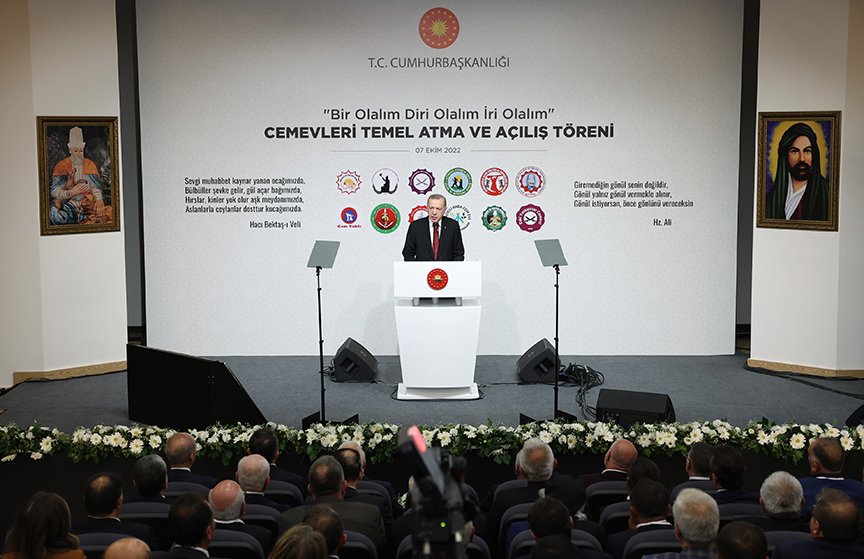

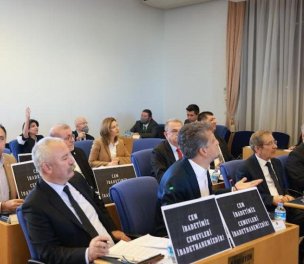
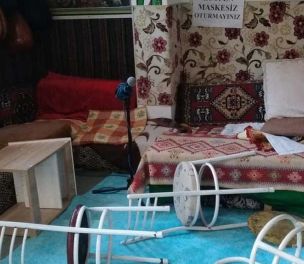
as.jpg)
